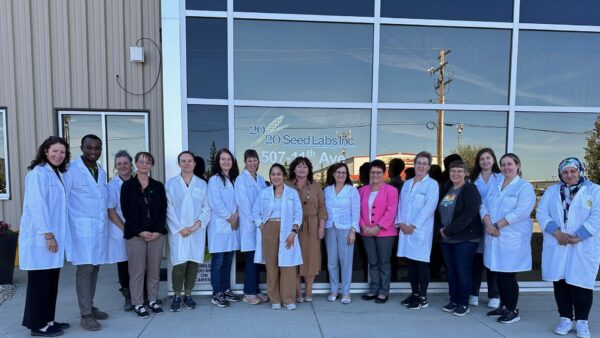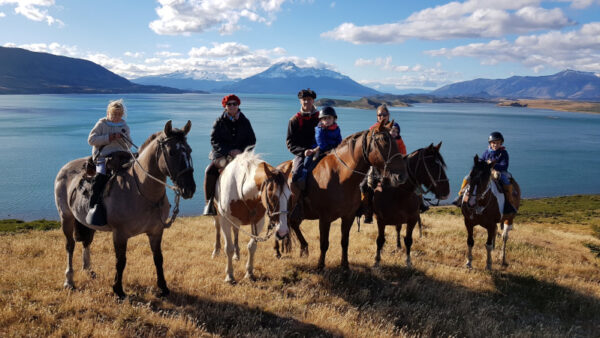
Pushing for LLP Policy
As Canada makes progress towards development of a national Low Level Presence policy for genetically modified materials in grain, the seed industry continues to be affected by LLP.
There is no doubt that low level presence is having an impact on the Canadian seed industry and right now there is no escaping it. It’s because of this that the country’s seed sector is continuing to drive forward changes to LLP policy.
“Our members have reported that they are being asked to provide legal documents and agreements that guarantee a zero presence of GM material in some seed shipments to countries that maintain bans,” says Patty Townsend, CEO of the Canadian Seed Trade Association. “Given the way seed is produced, handled and transported, and the sensitivity of testing today, absolute zero is not possible. That means some sales have been lost. We have also had members report that shipments have been rejected, or turned back because tests of samples have found very low presence of GM material.”
Wayne Unger, vice-president of Forage and Turf for BrettYoung Seeds says his industry sector is definitely being negatively impacted by the zero tolerance policies in some countries. “We think of it mostly from an export basis and the challenges are that regulations in trade around the world haven’t kept pace with the science,” he says. “We have got countries that have adopted GM crops and countries that haven’t adopted GM crops and the trade relations between those countries aren’t up-to-date with the realities of crop production today.”
Drafting an LLP Seed Policy
The Government of Canada, along with industry participation, produced a draft document on the proposed domestic policy and implementation framework for management of LLP of GM crops, which was released for public comment from November 2012 to January 2013. The Canadian seed industry formed a Working Group in August 2012, after the Government of Canada decided to exclude seed from its current work on LLP.
“An LLP policy to facilitate the trade of seed is important,” says Townsend, who chairs the Working Group on LLP in seed. “The objective is to follow the process that is being used to develop an LLP policy for grain to develop an issues paper that can contain some options for a domestic LLP policy for seed.”
To this point, the working group has completed an environmental scan, agreed on a definition of LLP as it relates to seed, has developed a glossary of terms and is now trying to define the scope of a potential policy in advance of beginning to develop the issues paper.
The LLP policy development process for seed is far behind the process to develop LLP policy for grain for food, feed and processing. And even though it is ahead of the seed work, it is also very detailed and technical work. Although formal consultation on the draft policy document for grain LLP has ended, there were many detailed and technical questions that the government working group received and is still trying to address, says Townsend. “Given the different technical capacities internationally, this makes the process even more complicated. It’s my understanding that a whole lot more work needs to be done on proposals for thresholds and risk assessments before another draft can be put out for consultation. However, while the process is aimed at developing a Canadian domestic policy on LLP in grain, the hope is that it will serve as an example for other countries, so international consultations were also conducted,” she says.
Feedback from the draft proposal and also from the global LLP consultations that were are already identifying significant challenges to developing LLP seed policy. “During both the consultations on LLP in Canada, and at the Global LLP meetings, concerns were expressed about including seed in the current process,” says Townsend. “Unlike grain, seed is not processed or consumed, but is introduced into the environment where it can perpetuate. Also unlike grain, there are no international guidelines for risk and safety assessments of seed LLP. All of that has made governments in Canada and outside of Canada more reluctant to move as quickly on seed LLP.”
Facilitating Trade with LLP
Even though the seed industry is smaller than the grain industry, seed is currently in great need of an international LLP policy. Townsend feels that the seed industry already has protocols and procedures in place that could be a benefit in developing and implementing an LLP seed policy. “We haven’t yet discussed what risk management processes would be used, however, unlike grain which is very much a bulk industry, seed is produced and traded under very strict quality requirements to ensure purity and identity,” she says. “We think that risk management measures should recognize those quality standards.”
“Canada is an important exporter of seed, and some of our important markets either don’t have functioning assessment and approval systems for products of biotechnology, or they maintain outright bans,” says Townsend. “Seed, like grain is produced in open environments; is handled and transported in large quantities; and as a result, is likely to contain very low levels of GM material. The presence of GM material in shipments can and has meant that the shipments are not accepted by some important markets for seed exporters. The first line of defence is to work towards synchronous approvals of GM products in markets that are important, but where that is not possible, we need an LLP policy that will facilitate trade.”
Unger agrees that with LLP policies in place worldwide, there would be more business opportunities for many seed companies currently restricted by regulatory standards. “Seed companies in Europe [for example], because they are involved in the industry, understand that the risk [of GM material in seed] is extremely low,” he says. “They would like to do more business and import more seed, but they are restricted by the existing zero tolerance policy in Europe.”
Canada Leading the Way
Canada has long been a champion of LLP and is recognized as being a leader by many of its international trading partners, says Unger. “It’s critical that we take the initiative and keep pushing forward with LLP,” he says. “Canadian position papers and statements on LLP are being well received internationally at the Seed Association of the Americas as well as at the International Seed Foundation level. Canada has spearheaded a lot of the progress that we have made, it’s on people’s agendas and we are moving forward with LLP discussions.”
Angela Lovell












